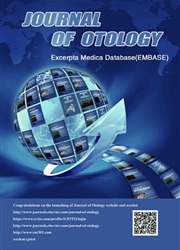

 中文摘要:
中文摘要:
转化医学致力于弥合基础研发与临床应用之间的鸿沟,在基础医学与临床医学之间建立起桥梁,是将从基础研究获得的知识、成果快速转化为临床诊断治疗方法的新医学理念。耳聋基因诊断在国内开展已有10余年,为相当部分的耳聋患者(特别是儿童耳聋患者)揭示了分子病因,为耳聋家庭提供了致病基因的携带状况和遗传规律等信息,为耳聋的遗传咨询、产前诊断及出生缺陷预防的临床实践提供了理论基础和技术保障,促进了聋病三级预防的实现。耳聋基因诊断的出现和发展推动了耳聋的诊断由影像和听力学水平跃升至分子水平,也为耳聋基因治疗的基础研究奠定了坚实的基础,是转化医学推动疾病防治的范例,对耳学科、康复科学和优生优育科学的发展起到了积极作用。
 英文摘要:
英文摘要:
Translational medicine is a multi-discipline syncretic field mainly from the development of genomies and bioinformatics. It can be broadly defined as 'bench to bedside' research. It advocates information obtained from preliminary human experiments be used to refine our understanding of the biological systems and principles underpinning different human diseases. This enables further development and enhancement of therapeutics for treating and preventing the disease. Deafness genetic testing has been practiced in China for more than 10 years. It not only reveals the exact molecular etiology for a great proportion of hearing impairment population, but also shows the carrying state of deafness genes/mutations among the families. Deafiaess genetic testing serves as the basis for genetic counseling, prenatal genetic diagnosis, and preimplantation genetic di- agnosis of deafness. It promotes the realization of primary, secondary and tertiary prevention of deafness. The advent of deaf- ness genetic testing elevates the diagnosis of hearing impairment from a radiological and audiological level to a molecular lev- el. Meanwhile, it underlies the future gene thearapy for deafness. The development of deafness genetic testing in China accelerates the progress of otology, which is an good example of translational medicine.
 同期刊论文项目
同期刊论文项目
 同项目期刊论文
同项目期刊论文
 期刊信息
期刊信息
